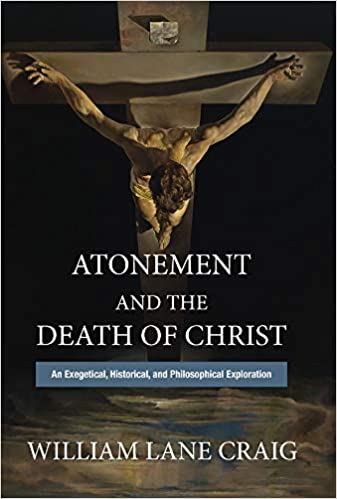Q. Any thoughts about the Maccabean references to vicarious suffering by the Maccabean leaders as atoning? 4 Macc. 6.28-29, and 17.22? As you note Exod. 32 has Moses offering himself for the sins of the people, but the offer is rejected, so that’s only potential substitutionary sacrifice, whereas in 4 Macc. the connection is assumed to be actual.
A. These passages are important principally for their use of the word hilasterion in the Hellenistic sense of a propitiatory offering, a word used in the NT only in Rom 3.26 of Christ’s death. The death of the Jewish martyrs thus gives some precedence for taking Paul to incorporate the notion of propitiation in his use of the word with respect to Jesus’ death. Notice that just because the Maccabean martyrs saw their deaths as atoning for the sins of the people, we are not obliged theologically to agree with them that they really did so atone. But the passages do show, as you suggest, that one person’s giving his life to atone for another’s sins was not foreign to Jewish mentality—good point!
Q. Let talk a bit about Rom. 3.21ff and the earlier reference to the righteousness of God in Rom. 1.16ff. It seems clear that when Paul says the righteousness of God has been manifested apart from the Law, though it is attested to by the Law and Prophets, that he is not talking about legal righteousness connected to the Law covenant but rather to the actual character of God as righteous (see my recent little book Who God Is). Furthermore, when we read Rom. 1.18ff. and Paul is clearly talking about God’s wrath against pagan idolatry and immorality, this can’t be a reference to the legal obligations of the Mosaic Law. God had no such covenant with Gentiles. So in the first place, when Paul is mainly addressing Gentiles (see Rom. 10-11) the place to start is with the righteous character of God, not righteousness by the law book. Would you agree?
A. Classically, there has been a debate whether the expression dikaiōsynē theou (righteousness or justice of God) refers to an attribute of God Himself or to the righteousness which He reckons to believers. It’s clear, I think, that the expression dikaiōsynē theou is multivalent. “The righteousness of God through faith” (v 22) clearly refers to reckoned righteousness, since God’s attribute is not “through faith,” nor is it “for all who believe.” But then just as clearly, “he himself is righteous” (v 26) designates a property God Himself has. That concerns God’s righteous character.
The attempt by proponents of the so-called new perspective on Paul to reduce God’s righteousness to His covenant faithfulness does not make sense of God’s relations to Gentiles, since they stand outside the covenant made with Israel. If unrighteousness is unfaithfulness to the covenant, then Gentiles cannot be said to be unrighteous, which is expressly said by Paul (Rom 1.18). Fortunately, proponents of the new perspective have backed away from the overly simplistic reductive conception of God’s righteousness. For example, J. D. G. Dunn, in response to his critics, acknowledges that righteousness language in the Hebrew Scriptures also involves punitive divine justice, according to which righteousness is “understood as measured by a norm, right order, or that which is morally right,” with the qualification that “the norm is not seen as some abstract ideal. . . , but rather as a norm concretised in relation” between God and creatures.1 So, yes, God’s righteousness in Romans is about His righteous character.” (James D. G. Dunn, “The New Perspective: whence, what and whither?” in The New Perspective on Paul, rev. ed. (Grand Rapids, Mich.: Wm. B. Eerdmans, 2008), pp. 63-64; cf. Wright (2016), chap. 13).












